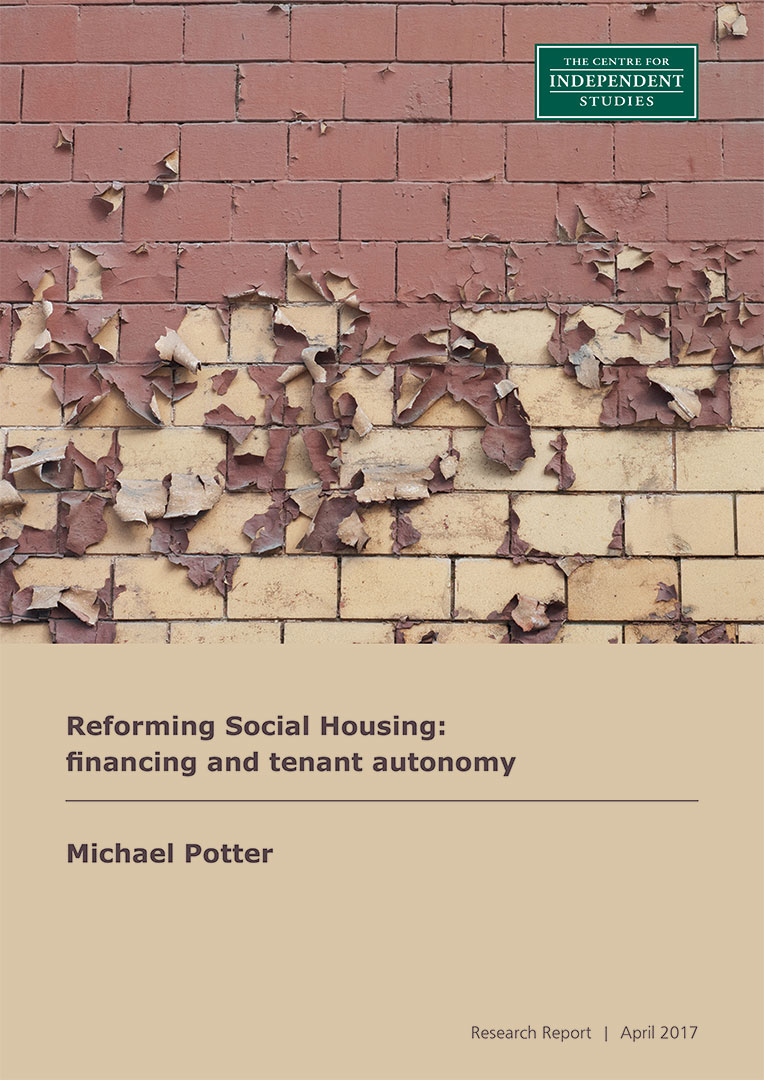
Around 400,000 Australians live in social housing, which includes public and community housing. This sector is ripe for reform, with many public housing dwellings failing adequacy standards, numerous tenants are dissatisfied and live in housing that is too small or too large for their needs. Waiting lists are very long, over 10 years in most of Sydney, tenants lack choice and the sector has significant inequities and is arguably financially unsustainable.
The government is proposing to address financing issues for social housing by establishing a ‘bond aggregator’ to borrow on their behalf. A subsidised bond aggregator would be inefficient, non-transparent and discourage sectoral reform compared to direct subsidies to the sector.
Instead, funding to the States under the National Affordable Housing Agreement should be reformed, largely replaced by rent assistance being paid to public housing tenants. States should be given incentives to implement other reforms, particularly providing new tenants with informed choice while differentiating rent based on dwelling quality. Public housing should be transferred to community sector, States should use contracting with sector to drive efficiency, and public and community housing should be treated similarly.
These reforms should improve tenant choice and satisfaction, dwelling quality, financial sustainability, and efficiency and effectiveness of the sector.










